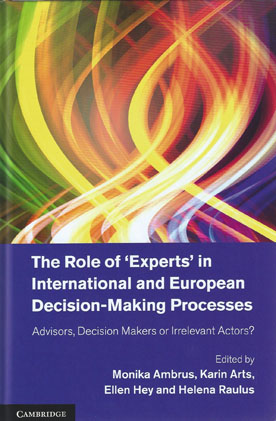
Experts are increasingly relied on in decision-making processes at international and European levels. Their involvement in those processes, however, is contested. This timely book on the role of 'experts' provides a broad-gauged analysis of the issues raised by their involvement in decision-making processes.
The chapters explore three main recurring themes: the rationales for involving experts and ensuing legitimacy problems; the individual and collective dimensions of expert involvement in decision making; and experts and politics and the politics of expertise.
With contributions from leading scholars and practitioners, they theorize the experts' involvement in general and address their role in the policy areas of environment, trade, human rights, migration, financial regulation, and agencification in the European Union.